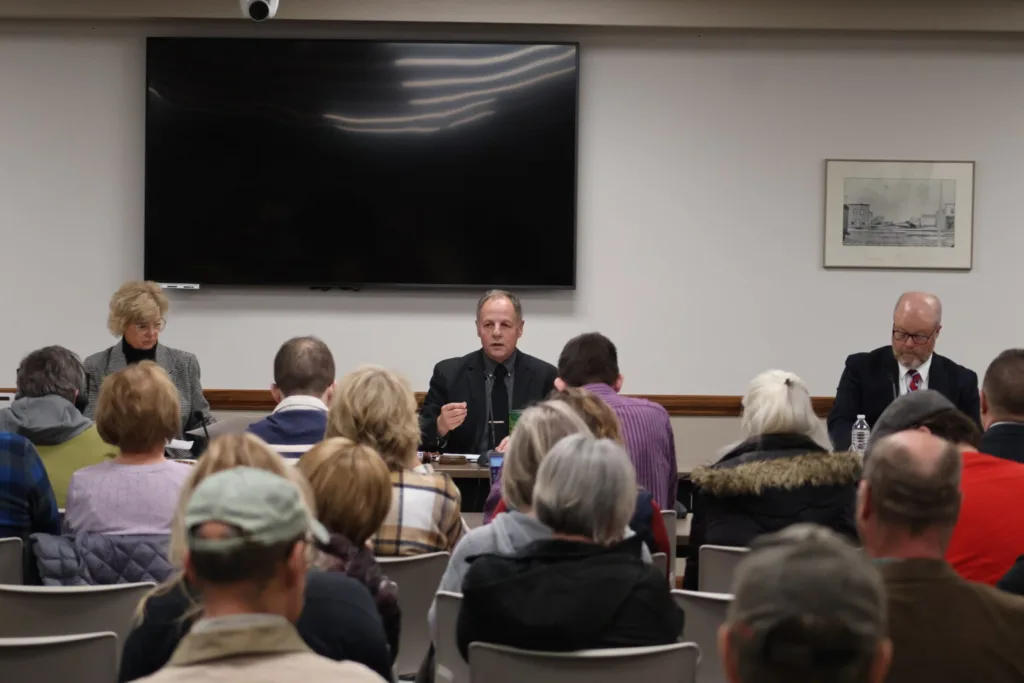

By: Jeff Beach (North Dakota Monitor)
North Dakota regulators on Friday approved a route permit for the Summit Carbon Solutions pipeline, a significant win for what the company says is the world’s largest carbon capture project.
The three-person Public Service Commission voted unanimously to approve the pipeline permit.
The commission had denied Summit a route permit in 2023, but changes the company made to its route helped convince the commission to reverse its position.
Summit plans to put 333 miles of pipeline through North Dakota, part of a 2,500-mile network of pipelines in five states. The pipelines are planned to connect 57 ethanol plants, including Tharaldson Ethanol at Casselton, to an underground carbon storage site west of Bismarck.
“We commend and respect the North Dakota Public Service Commission for their diligence and thoughtful approach in reviewing this project,” Wade Boeshans, executive vice president of Summit Carbon Solutions, said in a news release. “This decision is a testament to North Dakota’s commitment to fostering innovation while working closely with communities and industries.
Ethanol plants emit carbon dioxide as part of the fermentation process in turning corn into fuel. That carbon can be captured, compressed and put into a hazardous liquid pipeline.
Summit announced its plans in 2021 and had hoped to begin construction in 2023, but has faced pushback from some landowners and several legal challenges as it has tried to obtain the needed permits.
Supporters view the project as vital to helping the ethanol industry compete in low-carbon fuel markets. Ethanol is a key market for corn growers.
Opponents cite safety concerns, damage to farmland and property values and an infringement on property rights. Some landowners also have complained about Summit’s business practices.
While Summit has said the plan to capture greenhouse gas emissions is good for the environment, several environmental groups, including the North Dakota-based Dakota Resource Council, have opposed the project as doing more harm than good.
Summit still has several challenges to complete its planned route. It needs a permit in South Dakota, where it already has been denied once.
Iowa-based Summit will need a separate storage permit from the North Dakota Industrial Commission.
Summit chose western North Dakota as a permanent storage site because the area has geology to keep the CO2 deep underground with a cap rock keeping it from reaching the surface.
Summit would benefit from federal tax credits of $85 for every ton of CO2 stored. It would sequester 18 million tons of carbon dioxide per year.
Iowa has granted Summit a permit, and the company says it plans to try again for a permit in South Dakota. Minnesota’s Public Utilities Commission is expected to vote Dec. 12 on a 28-mile segment near the North Dakota state line.
The project also includes Nebraska, which has no state agency in charge of issuing permits for CO2 pipelines.
Commission chair Randy Christmann emphasized that he PSC approval in North Dakota does not guarantee that Summit has the right to use eminent domain to force landowners to provide easements for the pipeline. A decision on eminent domain would have to be made in the courts.
“I certainly do encourage the company not to use eminent domain, at least not more than absolutely necessary,” Christmann said before the vote.